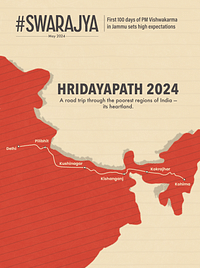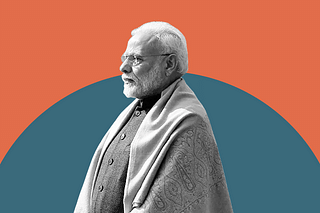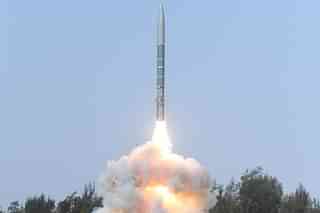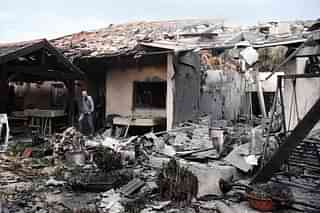Technology
Spacetech Startup Digantara Launches Asia’s Only Command-And-Control Centre For Safer Space Exploration
Manish Pant
Apr 20, 2024, 02:55 PM | Updated 02:55 PM IST
Save & read from anywhere!
Bookmark stories for easy access on any device or the Swarajya app.
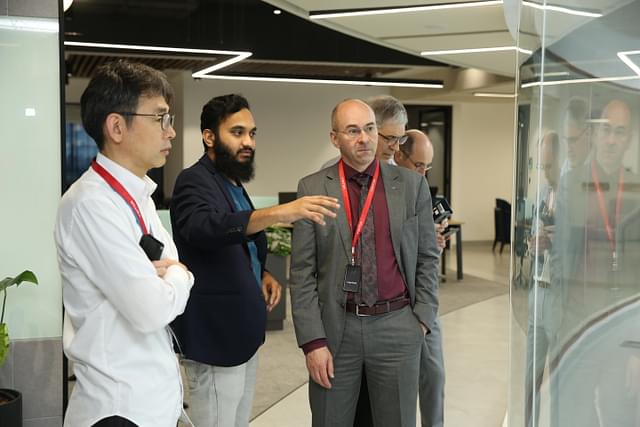
India’s startup hub Bengaluru is now also home to Asia’s first commercial Space Domain Awareness Command and Control Centre.
Launched by the Space Situational Awareness (SSA) startup Digantara at its global headquarters located in the northern part of Bangalore's Hebbal, on Thursday (18 April), the development provides yet another boost to the country’s fledgling space tech startup ecosystem.
“Today, when it comes to tracking of human-made space objects such as satellites we don’t have many sensors with global coverage. Therefore, we are building both space and ground-based systems to track and monitor space objects to ensure their custody through constant monitoring,” Anirudh Sharma, Co-founder & CEO of Digantara told Swarajya on the phone after the inauguration.
“This facility will serve as a control centre for the operation of our sensor network so that our customers don’t have to worry about the safety of their [space-based] assets,” he added.
Moreover, it will also serve as a satellite assembly, integration and testing (AIT) facility as the company readies to launch a constellation of 40 space surveillance satellites to offer qualitative and quantitative data for enhanced global space traffic management.
The constellation's first satellite, equipped with the patented Space Climate and Object Tracker (SCOT) sensor, is set to launch in July. It will track Resident Space Objects (RSOs) and monitor space weather.
The data gathered by Digantara satellites on space objects and debris in the Earth’s Lower Earth Orbit (LEO) and Geosynchronous Earth Orbit (GEO) orbits will be relayed back to the centre for analysis before being disseminated to clients following a thorough analysis.
In addition to providing comprehensive insights into space domain awareness, the facility will also play an important role in enhanced monitoring and management of global satellite traffic 24x7.
Simply put, its role will be similar to that of the Air Traffic Control (ATC) in global aviation.
The 25,000 sq ft centre was inaugurated by Sreedhara Panicker Somanath, Chairperson of the national space agency Indian Space Research Organization (ISRO).
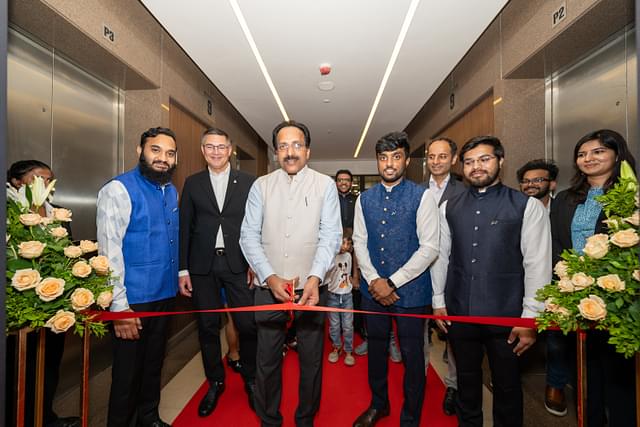
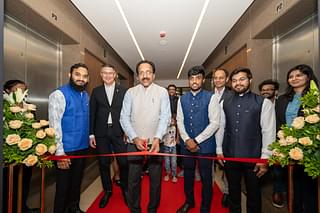
Dual Use Capability
The facility’s launch comes at a time when the country’s armed forces and the defence establishment look to work closely with private industry to stay in the reckoning in the fast-emerging new battlefield of outer space.
“The space domain awareness facility can be applied to both commercial and military use cases,” an expert said requesting anonymity.
Earlier this week, General Anil Chauhan, Chief of Defence staff had urged on building greater synergies with private sector players in spacetech such as startups, while addressing the annual Defspace Symposium organised by the apex industry body the Indian Space Association (ISpA),
“It is important for users to deeply engage with the startups to facilitate and handhold the technology development process so that the delivered products can meet the expectations of our [armed] services.”
Digantara is eventually looking at developing the world’s largest SSA data repository through a spectrum of proprietary sensors and industry collaborations to minimise the potential for collisions between satellites and other spacecraft by making more accurate predictions about their location, speed and trajectory.
To this end, the company is creating end-to-end SSA infrastructure through its proprietary Space-Mission Assurance Platform (Space-MAP).
The total mass of all human-made space objects in the Earth’s orbit is estimated at more than 11,500 tonnes, according to data from the European Space Agency (ESA). Space surveillance networks catalogued over 35,000 pieces of space debris, with more than 640 break-ups, explosions, collisions or anomalous events being recorded.
Besides ESA, the advanced space surveillance capabilities of the centre have also been showcased to representatives of the national space agencies of Japan, the UK, France, South Korea, and Italy as well as the US’ Federal Communications Commission (FCC).
Together with co-founders Rahul Rawat and Tanveer Ahmed, Sharma established Digantara in 2018 during their university days. The firm has raised $14.5 million in funding since its inception.
In the last fiscal, the company expanded its headcount by more than 100 per cent to take the total number of people on its rolls to 50.
Save & read from anywhere!
Bookmark stories for easy access on any device or the Swarajya app.
Support Swarajya's 50 Ground Reports Project & Sponsor A Story
Every general election Swarajya does a 50 ground reports project.
Aimed only at serious readers and those who appreciate the nuances of political undercurrents, the project provides a sense of India's electoral landscape. As you know, these reports are produced after considerable investment of travel, time and effort on the ground.
This time too we've kicked off the project in style and have covered over 30 constituencies already. If you're someone who appreciates such work and have enjoyed our coverage please consider sponsoring a ground report for just Rs 2999 to Rs 19,999 - it goes a long way in helping us produce more quality reportage.
You can also back this project by becoming a subscriber for as little as Rs 999 - so do click on this links and choose a plan that suits you and back us.
Click below to contribute.
